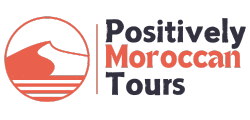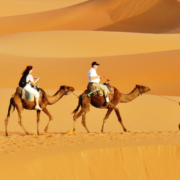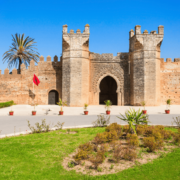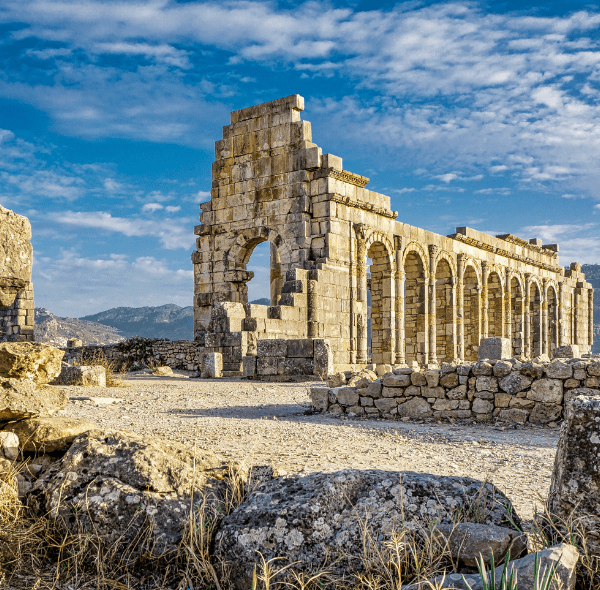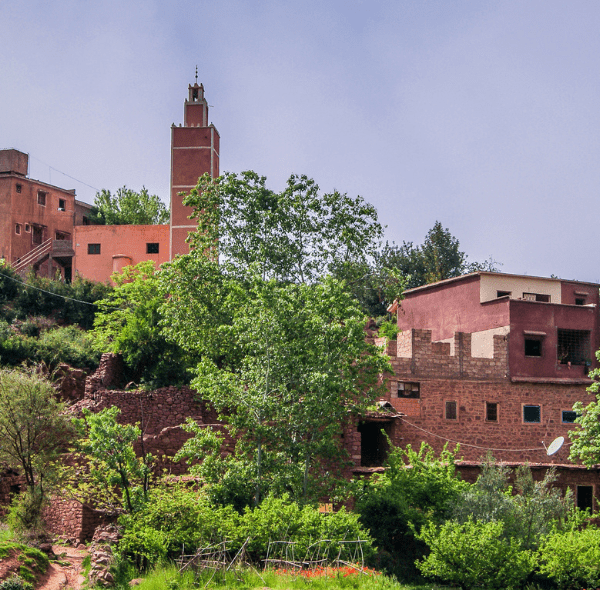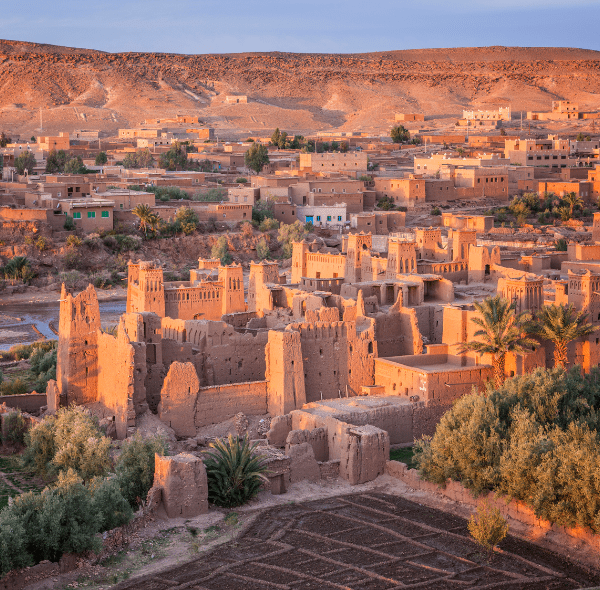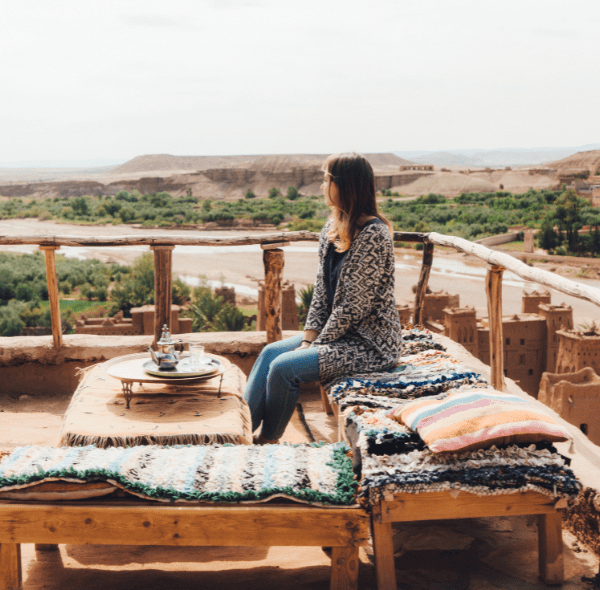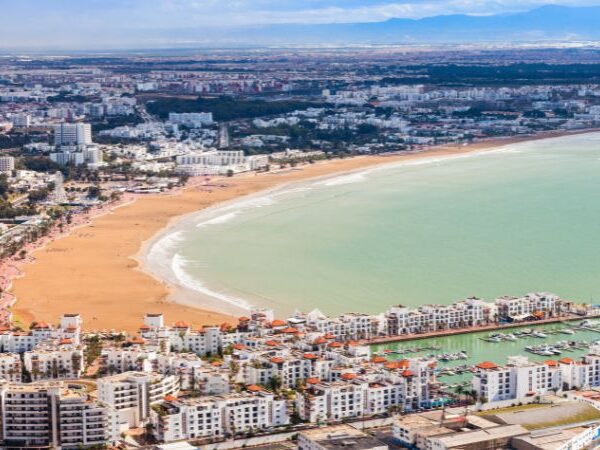
Discovering Morocco: Culture, Language, Religion, Food, Traditions, and Celebrations
Morocco, a North African nation located at the crossroads of Europe and Africa, is a vibrant tapestry woven from a rich blend of cultures, languages, religions, and culinary traditions. With its stunning landscapes, from the Sahara Desert to the Atlas Mountains and the Atlantic coastline, Morocco offers visitors not only breathtaking views but also a unique insight into its diverse heritage. This blog explores the essential elements that make up Moroccan culture, including language, religion, food, traditions, and celebrations, providing you with a deeper understanding of this enchanting country.
Moroccan Culture
Moroccan culture is a melting pot of Berber, Arab, and French influences, reflecting the nation’s long history as a crossroads for traders and travelers. The culture is characterized by its hospitality, art, music, and architecture, which blend various traditions and styles.
Art and Craftsmanship
Moroccan craftsmanship is world-renowned, particularly in ceramics, textiles, and leather goods. Traditional artisans continue to create beautiful handmade items, such as intricately painted pottery, colorful rugs, and exquisite leather goods. The souks (markets) of Marrakech and Fes are bustling with artisans showcasing their skills, and visitors can often watch the crafting process firsthand.
Music and Dance
Moroccan music is as diverse as its culture, with various styles and genres reflecting regional influences. Popular music forms include Chaabi, a lively folk style, and Gnawa, which combines African, Berber, and Arab influences, characterized by its rhythmic beats and soulful chants. Festivals and celebrations often feature traditional music and dance, allowing visitors to immerse themselves in the local culture.
Language in Morocco
Morocco’s linguistic landscape is equally rich, with Arabic and Amazigh (Berber) as the two official languages.
Arabic and Amazigh
Modern Standard Arabic is used in government, media, and education, while Moroccan Arabic, or Darija, is the spoken dialect. Darija incorporates vocabulary from French and Spanish, making it distinct from other Arabic dialects. Amazigh, spoken by the Berber population, is recognized for its unique script and is increasingly promoted in schools and media.
French Influence
Due to Morocco’s colonial history, French is widely spoken, particularly in urban areas and among the educated classes. Many Moroccans are bilingual or trilingual, using Arabic, Amazigh, and French interchangeably in daily life. This linguistic diversity adds to the richness of Moroccan culture and facilitates communication with international visitors.
Religion in Morocco
Islam is the predominant religion in Morocco, with about 99% of the population being Muslim. The majority are Sunni Muslims, and the country is known for its moderate interpretation of Islam, which influences daily life, social customs, and national identity.
Religious Practices
The five pillars of Islam guide the spiritual lives of Moroccan Muslims. Daily prayers, fasting during Ramadan, giving to charity, and making a pilgrimage to Mecca (Hajj) are central to the faith. Visitors will notice the call to prayer (adhan) echoing from mosques throughout the country, inviting worshippers to pause and reflect.
Festivals and Celebrations
Islamic festivals are an integral part of Moroccan life. Eid al-Fitr, marking the end of Ramadan, is celebrated with feasting, family gatherings, and giving gifts. Eid al-Adha, the Festival of Sacrifice, is another significant celebration where families come together to honor the spirit of sacrifice and charity.
Moroccan Cuisine
Moroccan cuisine is a reflection of its diverse cultural influences and abundant natural resources. It is known for its bold flavors, aromatic spices, and colorful presentation, making it one of the most celebrated culinary traditions in the world.
Staple Ingredients
Moroccan cooking relies on a variety of staple ingredients, including:
- Couscous: A fine grain made from semolina wheat, couscous is a fundamental part of Moroccan meals, often served with meat and vegetables.
- Spices: Spices like cumin, coriander, saffron, and cinnamon play a crucial role in flavoring dishes. The famous Ras el Hanout spice blend is a staple in Moroccan kitchens.
- Olives and Olive Oil: Morocco is known for its high-quality olives and olive oil, which are used in salads and as condiments.
Signature Dishes
Some iconic Moroccan dishes include:
- Tagine: A slow-cooked stew made with meat, vegetables, and spices, cooked in a conical earthenware pot. Each region of Morocco has its own variations, showcasing local ingredients.
- Pastilla: A savory pastry that combines sweet and savory flavors, typically made with pigeon or chicken, almonds, and cinnamon, wrapped in flaky pastry.
- Harira: A traditional soup made with lentils, chickpeas, tomatoes, and spices, often served during Ramadan.
Dining Experience
Dining in Morocco is often a communal experience, with meals served on large platters for everyone to share. The Moroccan custom of eating with the right hand, using bread to scoop up food, adds to the communal spirit. Mint tea, often referred to as “Moroccan whiskey,” is a symbol of hospitality and is served at almost every meal.
Traditions and Customs
Moroccan traditions are deeply rooted in the country’s history and cultural diversity. Family is highly valued, and many customs reflect the importance of social bonds.
Family Structure
Moroccan families are often large and extended, with a strong emphasis on respect for elders. Family gatherings and celebrations are common, providing an opportunity to strengthen bonds and celebrate milestones.
Hospitality
Moroccans are known for their hospitality, often welcoming guests into their homes with open arms. Visitors may be offered refreshments, and it is customary to accept graciously as a sign of respect.
Celebrations and Festivals
In addition to religious celebrations, Morocco hosts various cultural festivals throughout the year, celebrating everything from music to arts and crafts. The Marrakech Popular Arts Festival and the Fes Festival of World Sacred Music are two prominent events showcasing the country’s cultural heritage.
Morocco’s rich culture, diverse languages, and vibrant traditions make it a unique and captivating destination for travelers. From its delicious cuisine to its colorful festivals and warm hospitality, Morocco offers a blend of experiences that will leave a lasting impression. Understanding and appreciating the intricate tapestry of Moroccan life enhances the journey, allowing visitors to connect more deeply with the land and its people. As you explore Morocco, take the time to savor the flavors, immerse yourself in the customs, and embrace the rich cultural heritage that defines this remarkable nation. Whether you’re wandering through ancient medinas, enjoying a traditional meal, or participating in a local festival, the beauty of Morocco will undoubtedly inspire and enchant you.
